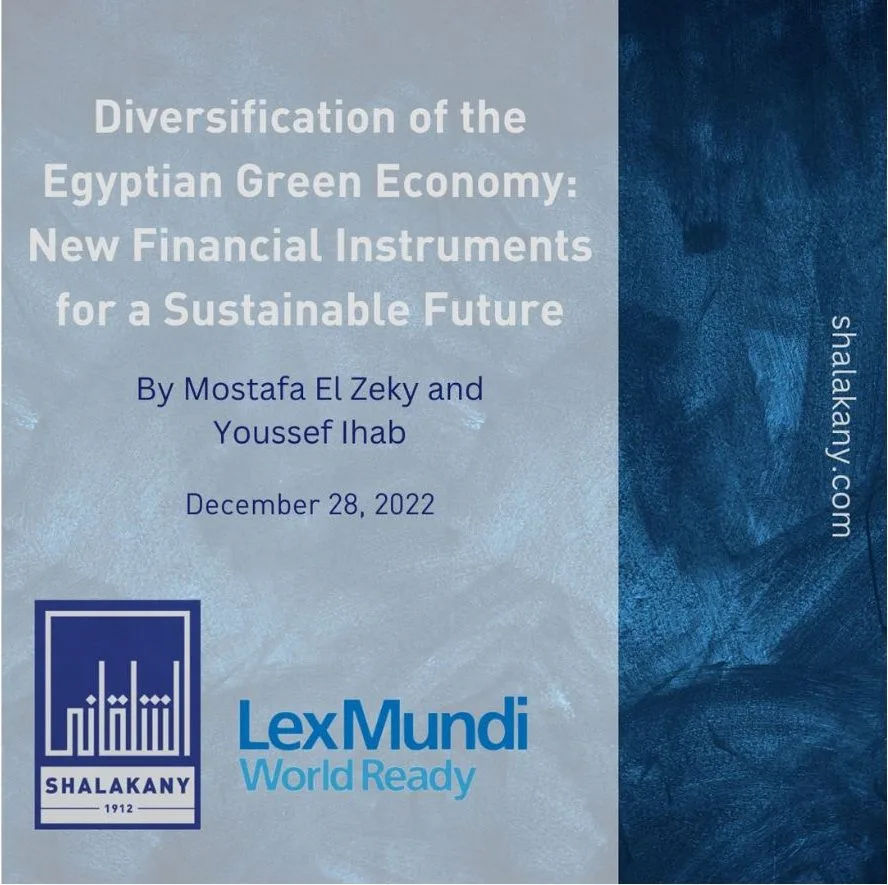Prime Minister Decree No. 3456 of 2022 amending the executive regulations of the Capital Markets Law No. 95 of 1992 (“CML”) introduced new sustainable investment bonds while amending the overall framework of investment funds (the “Amendments”). The Amendments were enacted conveniently in line with Egypt hosting the 27th Conference of the Parties to the United Nations Framework Convention on Climate Change (“COP27”), as they focused on developing and regulating the issuance of sustainable development bonds.
In light of this, we will delve into the key highlights of the Amendments below.
Introduction of Sustainable Financing Instruments
The Amendments allow for the issuance of sustainable bonds depending on the projects and activities they are intended to finance, which must be related to sustainable development, social impact, women empowerment, etc.
These new financing instruments offer an incentive option for CSR wary investors. The bonds include the following:
-
- Sustainable development bonds: providing financing for sustainable development opportunities such as green projects.
- Social Impact bonds: providing financing to new or already existing social projects.
- Women empowerment bonds: providing financing to projects, initiatives or policies that support women empowerment issues and emphasize gender equality. Such bonds must be issued by issuers where, inter alia, at least 25% of the board is composed of women, at least 51% of their capital is owned by women or the issuer must have a women employment rate of at least one third.
- Climate bonds: providing financing for environment friendly projects with the purpose of, inter alia, lowering the carbon footprint and reducing the effects of climate change.
- Transitional environment bonds: providing financing for typically polluting activities planning to transition to more environmentally friendly operations.
The Amendments detail the sustainable bonds’ issuance, evaluation and reporting framework.
Change in Investment Funds’ Framework
Prior to the Amendments, an investment fund’s size was capped at 50 times its capital. The Amendments provide that an investment fund’s issued and paid up capital must be no less than 2% of the fund’s size (i.e. the aforementioned cap has been removed) with a maximum of EGP 5 million. Investment funds are allowed to increase their capital in the future, therefore providing them with more operational flexibility.
Further, the Amendments now require the board of directors of an investment fund to submit to the Financial Regulatory Authority (“FRA”) a biannual report on the performance and results of the investment fund. This report was previously required to be submitted on a quarterly basis.
Market Response
These Amendments are very welcomed especially during current times where sustainable development policies are becoming a major focus of the government. With the success of COP27 and the promulgation of new major green hydrogen projects, these Amendments offer a great advancement towards the diversification of an Egyptian green economy. The Chairman of the FRA, Dr. Mohamed Farid, welcomed the Amendments and emphasized the role of debt instruments in meeting “the challenges of climate change and the transition towards a green economy.”



